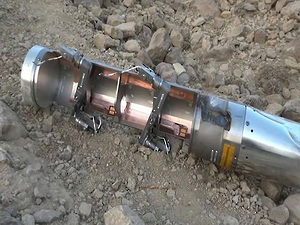Human Rights Watch confirmed that coalition forces led by Saudi Arabia has used cluster munitions in Yemen. PAX, like Human Rights Watch, is a member of the international Cluster Munition Coalitions.
According to Human Rights Watch there is credible evidence that the Saudi-led coalition has recently used banned cluster munitions supplied by the United States in airstrikes against Houthi forces in Yemen. Cluster munitions are banned under the 2008 Convention on Cluster Munitions (CCM). Saudi Arabia, Yemen nor the United States have joined the convention.
On 27 March, the Cluster Munition Coalition had called on Saudi Arabia and others not to use cluster munitions. Two days later, Saudi Arabia denied it used cluster bombs, saying “We are not using cluster bombs at all.” PAX sharply condemns the use of cluster munitions by any party. We are greatly worried about the use of cluster munitions in Yemen and about the security of civilians.
Human Rights Watch identified remnants of two CBU-105 Sensor Fuzed Weapons. It is believed that these were used in recent weeks, including before 17 April and possibly as recently as 27 April. Sensor Fuzed Weapons are produced by U.S. company Textron Systems Corporation. A report by PAX published in November 2014 revealed that financial institutions worldwide have invested billions of dollars in this cluster munitions producer in recent years.
“The use of these internationally banned weapons is unacceptable. The cluster munitions that were identified in Yemen are produced by an American company in which financial institutions worldwide are still investing billions of dollars,” says Suzanne Oosterwijk, programme officer Cluster Munitions at PAX. “These investments make it possible for this horrendous weapon to be produced and show up in conflict to threaten the lives of civilians, as is now the case in Yemen. It is high time to stop these explosive investments.”
Cluster munitions are banned because of the humanitarian harm they cause, both during and long after conflict. 116 countries have joined the Convention on Cluster Munitions which bans the use, production, stockpiling and transfer of the weapon. Moreover, assistance with any of these acts is banned. According to PAX, the CMC and a growing group of countries it follows that investment in cluster munitions, which constitute as a form of assistance with production, is also prohibited.
For more information about the Stop Explosive Investments campaign: www.stopexplosiveinvestments.org
For more information about our work on cluster munitions: http://www.paxforpeace.nl/our-work/programmes/cluster-munitions




